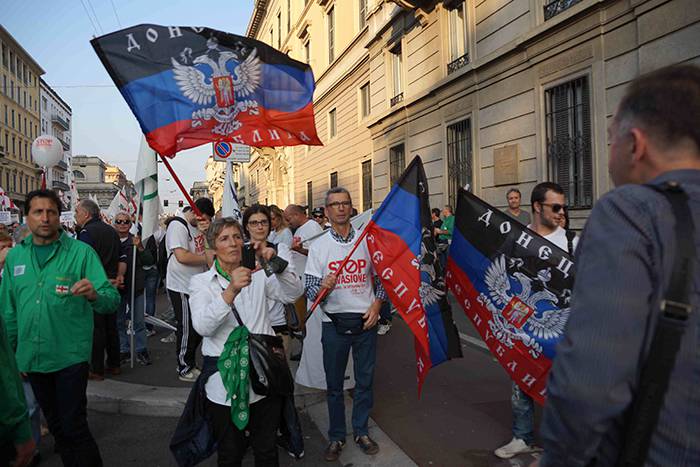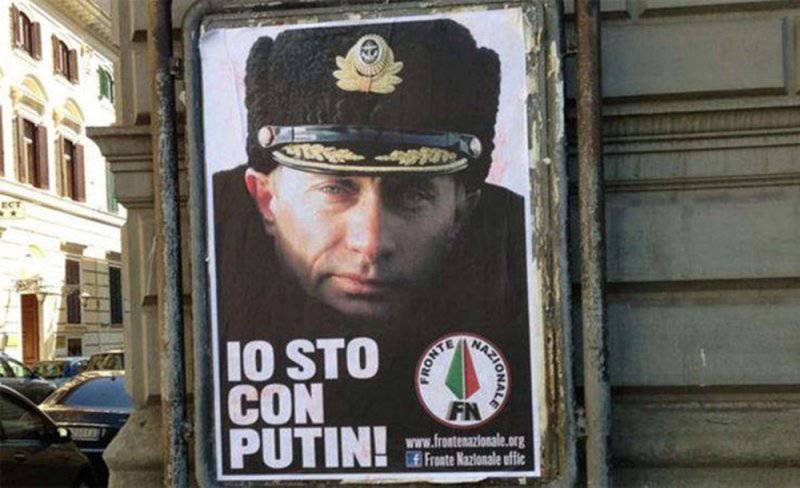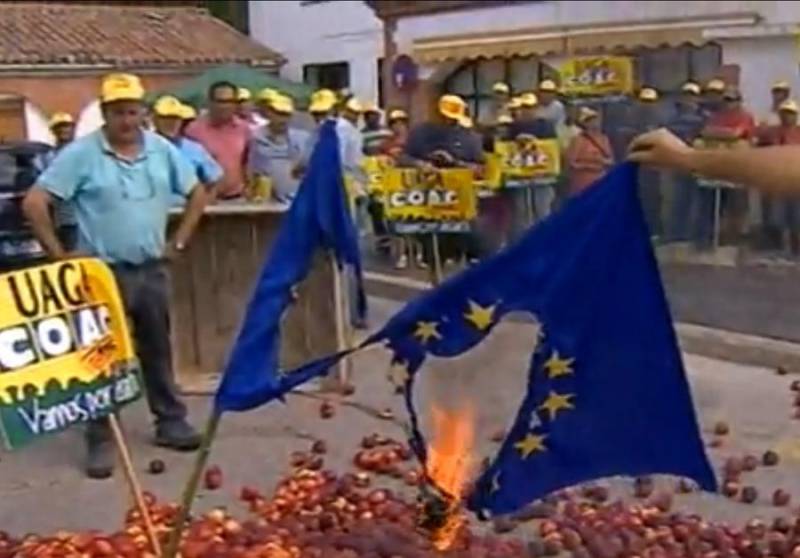Does Venice recognize the Crimea as Russian? Why do Italian regionalists sympathize with Russia and criticize the European Union
Deputies justify the need to vote on this issue with a number of considerations. Firstly, they refer to international law, according to which Crimea, like any other territory, should have the possibility of self-determination. To deny the right of Crimeans themselves to determine in which state they live is “absurd,” according to Venetian deputies, a violation of international law. The statement of the Venetian deputies calls upon the Italian government to condemn the European Union’s international policy on Crimea, since it is discriminatory and violates the basic principles of international law. Parliamentarians demand recognition of the will of the Crimean people, confirmed by a popular referendum in March 2014 of the year, according to which the Crimea and the city of Sevastopol became part of the Russian Federation.
Secondly, the deputies express deep concern about the statements of the European Union High Representative for Foreign Affairs Federica Mogherini, which the politician made regarding Russia and Crimea. Recall that Mogherini declared that the EU did not recognize the reunification of the Crimean peninsula with the Russian Federation. But, as the Venetian parliamentarians correctly point out, international law, including the Charter of the United Nations, contains the principle of self-determination. Italy, as a member of the UN and a subject of international law, must uphold and comply with this principle. Parliamentarians accuse the Italian government and the leadership of the European Union of implementing a “double standards” policy towards Russia and Crimea, dictated by the geopolitical interests of the European Union and ignoring not only the unanimous expression of the Crimean people, but also historical and cultural specifics of the Crimean region. Deputies cite the situation in Kosovo as an example of a “double standards” policy, but Kosovo, unlike Crimea, received the full support of the United States and the European Union in its desire to secede from Serbia. Federica Mogherini is lobbying for the interests of the Brussels elite, and not the Italian state and Italian people.
The third requirement of Venetian parliamentarians includes the immediate lifting of economic sanctions against the Russian Federation. That it is the key and most reasonable from the point of interests of Italy itself, including the region of Veneto itself. The fact is that the introduction of sanctions has led to a number of negative consequences for the Venetian and, in general, the Italian economy. Veneto MP Stefano Valdegamberi stressed that over the past year and a half, the Venetian economy has lost more than 1 billion euros as a result of the imposition of sanctions. It was Venice that suffered the most from the introduction of economic sanctions by the European Union against the Russian Federation and Russia against the European Union, given that the region had developed and established trade relations with Russia. According to the deputy, Venice businessmen who incur serious losses as a result of the imposed sanctions are fully in agreement with the desire of Venetian parliamentarians to achieve the abolition of restrictions on trade with Russia. Note that for the first time Stefano Valdegamberi stated the need to abandon the policy of economic sanctions against Russia during a visit to the International Economic Forum in Yalta. According to him, the deputy’s move was prompted by a conversation with ordinary Yalta citizens, whom he met during the forum.
Serious losses from anti-Russian sanctions suffered not only the Veneto region, but also other regions of Italy. According to parliamentarians, as a whole, Italian exports lost 3,6 billion euros, including Italian manufacturing, due to economic sanctions. Most affected by the sanctions policy of Lombardy, Emilia-Romagna and Veneto. If in 3,5, the Russian Federation ranked eighth among the trade partners of Italy, then in 2013, it moved to 2015, passing Poland, China, Turkey, the Netherlands, and Austria ahead of itself. The embargo on the supply of Italian goods, introduced by the Russian Federation, brought only losses to Italy's agriculture of 13 million euros in 240 year. Meanwhile, Russian sanctions are retaliatory measures against the policies of the European Union countries, including Italy, on the Crimean issue. Producers of fruits, vegetables, meat and milk suffered serious losses, which caused a severe crisis in the Italian economy. Therefore, Venetian parliamentarians call the actions of European and Italian politicians against Russia and Crimea irresponsible and harmful for the economic development of the country.

If the Veneto regional parliament votes in favor of 25 deputies, the president of the regional council of Veneto and the regional council chairman will be required to begin active work with the Italian government and parliament to ensure a revision of relations between the European Union and the Russian Federation, as well as create a committee to collect signatures for the withdrawal sanctions against the Russian Federation.
In fact, the position of many Venetian deputies is not surprising. In modern Europe, regionalism is gaining strength - a political movement that advocates the need to expand self-government and self-determination of regions. Regionalist sentiment is strong in Catalonia, in Scotland, and in Italy, the Veneto region is the most famous center of regionalism. Venice has its reasons for this. For a whole millennium, Venice was a sovereign state, and only after the defeat of Napoleon, the Vienna Congress annexed the Venetian Republic to the Austrian Empire, and after the proclamation of independence of Italy, Venice was incorporated into the Italian state. Nevertheless, separatist sentiments in Venice have always existed. After all, the region is very economically active, and many Venetians believe that autonomy and even separation from Italy will only benefit Venice. At least, in their opinion, the region will not have to “pull” the economically backward provinces of southern Italy and Sicily. Currently, the Veneto region inhabits over five million people, producing about 10% of Italian GDP.
The population of the regions of Northern Italy, including Venice and Lombardy, as far back as the 1970s - 1980s. began to express dissatisfaction with the mass internal migration of residents of the southern provinces to the more prosperous northern provinces. Cultural and mental differences between northerners and southerners are very significant, therefore many residents of the northern regions didn’t welcome the appearance of a large number of southerners in northern Italian cities. The next "greeting" from the central government was the influx of immigrants, already completely alien to the North Italian population - people from North Africa and the Middle East. At the end of the 1980's in a number of regions of Northern Italy, regionalist political organizations appear, advocating for the widest possible autonomy of the regions and even for their withdrawal from the united Italian state. 4 December 1989 announced the creation of the “League of the North”, which in twenty-five years had become one of the largest and most influential political parties in modern Italy. The final designation of the party of the League of the North for the Independence of Padania took place at the first party congress, held in February 1991. The League of the North included the League of Veneto (Venice), the Lombard League, the Alliance Tuscany - the League of Tuscany - the Movement for Tuscany, the League of Emilia Romagna, the Union of Liguria, the Autonists of Piedmont, then they were also joined by political organizations from the regions of Alte Adige / South Tyrol, Trentino, Friule-Venezia-Julia, Valle d'Aosta, Umbria and Marche.
The first decade of its existence, the “League of the North” did not have a clear program, because it united both autonomists and supporters of the complete independence of the regions of Northern Italy. Some party members advocated secession from Italy and the creation of the sovereign state of Padania. The capital of Padania, they saw Milan. In the case of Padania, a new large state with a population of 33 of a million people would appear on the map of Europe. However, the demands of the complete independence of Padania to many party activists seemed too radical, so the majority of supporters of the League of the North, however, were only in favor of the federalization of the Italian state. In the concept of the new Italian statehood, Padania was to receive the rights of broad autonomy. In economic terms, regionalists are in favor of the federalization of the Italian budget and the cessation of the redistribution of regional taxes to the central Italian budget. This is also quite understandable - the rich northern provinces do not want to “feed” the backward South at their own expense, and the current practice of redistributing tax revenues is considered the result of Rome’s illiterate policies. The Italian leadership, in the opinion of regionalists, instead of solving the socio-economic and socio-cultural problems of the backward southern regions, especially Sicily, simply subsidizes them, and receives funds for the maintenance of the South from taxes transferred by business and residents of the northern Italian regions.
Almost simultaneously with the referendum in the Crimea, from 16 to 21 in March 2014, a public referendum was held in the Veneto region on the creation of the Republic of Venice with the subsequent secession from Italy. 89% of the referendum participants voted for the creation of an independent state, but the public referendum did not have legal force. Nevertheless, researchers believe that this figure in fact fully reflects the mood of the inhabitants of the Veneto region. For them, the proclamation of independence of the Republic of Venice is considered, first of all, as a step towards improving the economic situation in the region, to leave the European Union and even NATO, according to the majority of respondents, the Venice Republic should not be even if political independence is declared.
The desire for separation from Italy is enhanced in proportion to the complexity of the migration situation in the country. Venetians believe that the central government does not take into account the real situation in the regions and is not going to listen to the opinion of the population about the need to tighten migration policies. According to Stefano Valdegamberi, it is necessary to create a new Europe in which the real interests of the population and regions will determine its policy. The European Union in this form, as the Italian deputy believes, largely follows the opinion imposed on Europe “from the other side of the ocean” - by the United States of America. Italian regionalists on many issues take socially conservative positions, declaring concern for the interests of the majority of the population of the regions of Northern Italy. In particular, they oppose uncontrolled migration, propaganda of same-sex unions, genetically modified food products, for preserving the environment and, at the same time, for raising wages and pensions, and against unemployment. In the migration and national policies, the Italian regionalists are categorically opposed to the "enclaves" of Italy, for the integration of migrants into Italian society, which should be accompanied by a rejection of customs and ways of life alien to the host of Italian migrants.

Like many other socially conservative forces in Europe, including the Hungarian Jobbik party, the Italian regionalists are in favor of developing political and economic relations with Russia. For modern Europeans, Russia today is one of the few countries capable of pursuing a policy independent of pressure from the United States and the European Union. Perhaps, besides economic reasons, this is precisely the support of the reunification of the Crimea with Russia. The Italian regionalists are projecting their own aspirations for self-determination to the Crimea, and therefore sympathize with the people of Crimea. In any case, the mere fact that there is support for the reunification of Crimea with Russia among European political parties cannot but rejoice. If Venetian deputies vote against the anti-Russian policy of the European Union and in support of the self-determination of the Crimea, a precedent will be created that can become a starting point for further revision of the foreign policy of the European Union.

Information